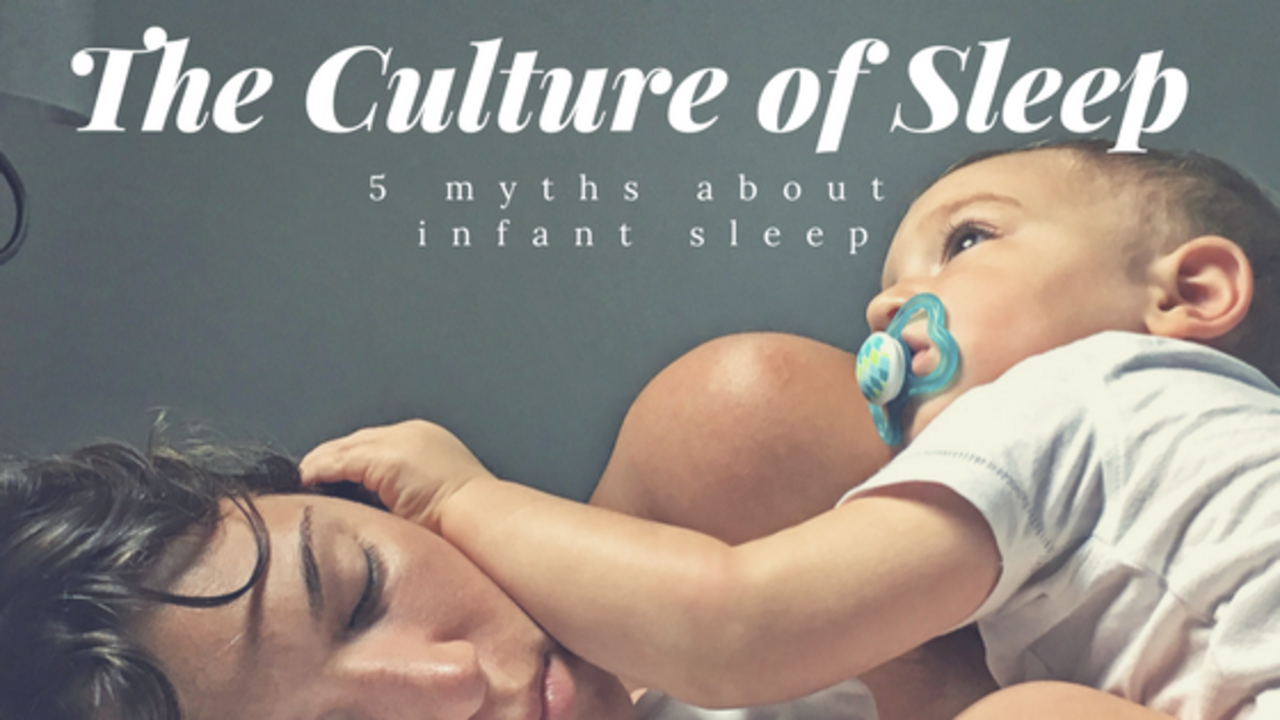The Culture of Sleep Myth #3: Babies Should Sleep Alone
Mar 02, 2018
There is a strong belief in the idea of getting infants to sleep in their own beds in their own rooms. The problem with this belief is that independent sleeping is unsafe for babies and impractical for parents. If we look at the over arching history and across cultures, infants and young children have almost always slept within close proximity to the adults who care for them. Despite all the campaigns and advice, the numbers show that about 50% of American families sleep with their infants in bed with them, some part of every night. Another 30% sleep with baby 1-6 nights a week. So where did the idea of infants sleeping alone originate?
Where is Started
As far as I have been able to find, the idea of separating infants during sleep was all about communicable disease. The most common sleeping arrangement for families, especially families with less income, was a family bed. With everyone sleeping together illness was easily and quickly passed from family member to family member. In the late 19th century, the theory of gems was being developed. With this, the concept of exposure. Infants are the most vulnerable to illness. If the infants were moved out of the family bed, they were less likely to get sick. And less likely to die. It worked too.
At this same time the new ideas of behaviorism were coming out of psychology. Thanks to John Watson the idea of spoiling an infant was born. The new science of human behavior decided that mothers who touched their babies were causing psychological harm. I think it is safe to say we have disproven that idea many times over. These two ideas combined led to the advocating for infants to be put to sleep on their own.
Practicality
Infants require numerous diaper changes and feeding at night. A parent who has to get up, go to another room, meet baby’s needs, get baby back to sleep, get baby back into bed- I am tired just writing it. These parents will be much more sleep deprived. If a parent can stay in bed and meet baby’s needs, they will get more rest.
The farther away baby is from the care provider, the more awake baby has to be before the parent can respond. Very young infants learn to sleep through sleep cycles the way a toddler learns to walk. We hold a toddler's hands while they gain strength and coordination. A new baby brain learns to move through sleep cycles by having someone there to help them stay asleep.
Sleep and Safety
The idea of infants sleeping alone was developed based on increased safety and we have played on the theme. The problem is infants really are not safe sleeping alone.
The American Academy of Pediatric recommends infants stay in the same rooms as parents until they are 12 months old. This recommendation is based off many studies showing the reduction of SIDS and other causes of death in very young infants. Statistics show that more SIDS cases actually happen during the day, when baby is sleeping away from a care provider. The numbers are reported this way: Having infants sleep in the same room as the care provider is 75% protective during the day and 53% protective during the night.
So the question of safety is really more about if the infant should sleep in bed with the parents or not. Bed sharing, while widely practiced is very controversial. The AAP recommends infants in the same room, but not in the same bed. Yet, there have been many resent studies showing how safe bed sharing can be when we eliminate the risk factors. In countries like Japan where bed sharing is the norm, SIDS rates are close to zero.
Where Should Your Baby Sleep
The best place for a baby to sleep is the place that allows everyone to get the best sleep. If the sleeping arrangements you have are working for you and your family, keep doing them. When the sleeping arrangements stop working, change them. On average, infants sleep in 3-7 different places on any one given night. So your baby may start in your arms, then to a bassinet, then into bed with you.
Surprise, Surprise, there is not a set answer to where your baby should sleep. Your sleeping arrangements will likely change overtime. Some children will be independent sleepers very early while others will want to sleep with someone else for much longer. Yet, as a parent you get a say in where and with who your baby and toddler sleeps. You can teach an infant or toddler to sleep in any situation, it just may take some work. You and your baby both have input into the sleeping arrangements. So do what works for both of you.
Stay connected with news and updates!
Join our mailing list to receive the latest news and updates from our team.
Don't worry, your information will not be shared.
We hate SPAM. We will never sell your information, for any reason.


